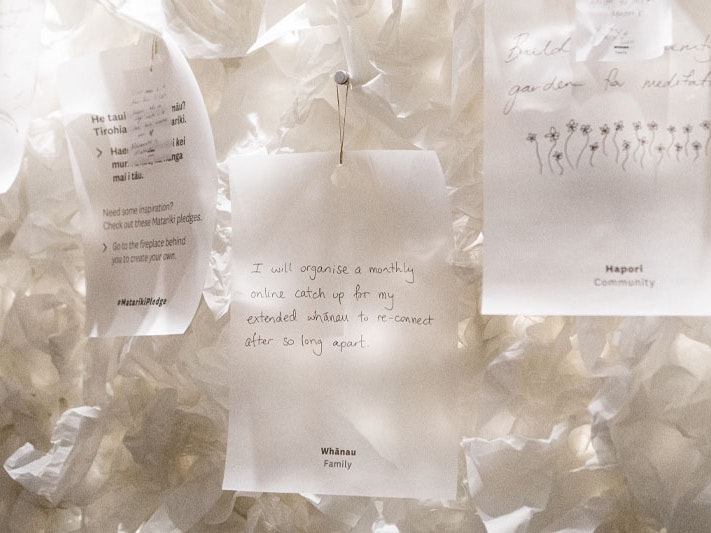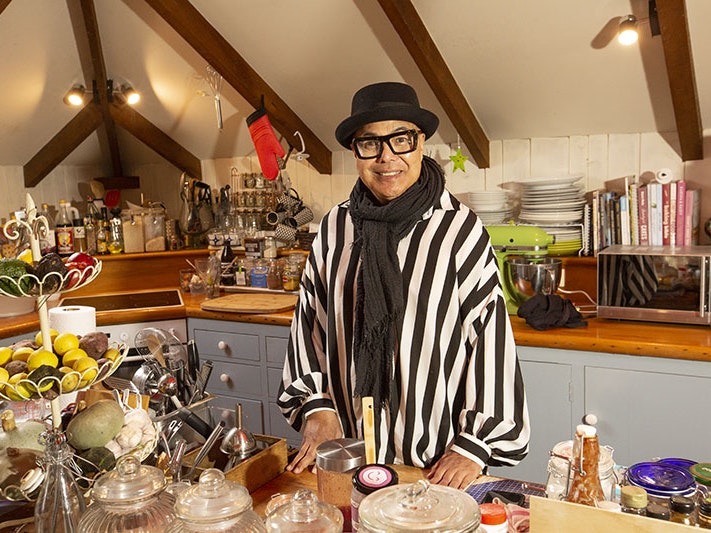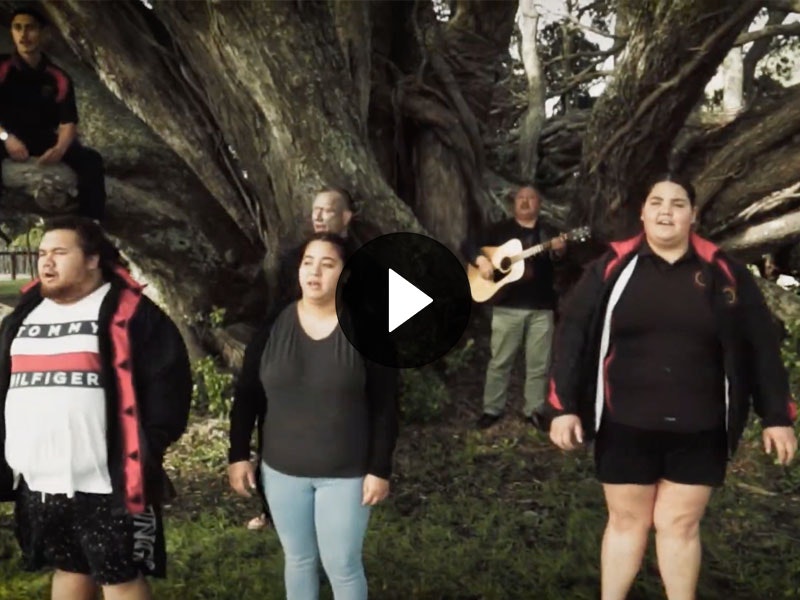
How to celebrate Matariki at home
There are many ways you can celebrate Matariki. Here are a few suggestions for what you can do at home.
Free museum entry for New Zealanders and people living in New Zealand
Open every day 10am-6pm
(except Christmas Day)
Free museum entry for New Zealanders and people living in New Zealand
Matariki is a time to reflect, share stories, and plan for the New Year. It’s the perfect time to connect with whakataukī and learn from the wisdom of those who came before us.
Whakataukī are proverbs that are often used to describe emotions, situations or events. Whakataukī are very important within te reo Māori and are applied within the language to convey messages and meaning to others. There are many whakataukī that can help us celebrate Matariki and guide us during this time of reflection and planning for the New Year.
Here are some whakataukī that have a connection to Matariki. Enjoy learning a little about their meaning and listen to recordings of them.
Ka mahi ngā kanohi tīkonga a Matariki
The ever-alert and protruding eyes of Matariki
This proverb is said of a person who is awake and alert at night.
Ka kitea a Matariki, ka wera te hinu
When Matariki is seen, the fat is heated
When Matariki rose in winter, kererū (wood pigeon) were taken, preserved in their own fat and stored to be eaten later.
Ka kitea a Matariki, ka rere te korokoro
When Matariki is seen, the lamprey migrates
Korokoro are lamprey – an eel-like fish – also known as kanakana and piharau. Korokoro start their life in rivers, and when they are around four-years-old they swim to the sea, where they live for another three or four years. Towards the end of their life they return to freshwater to spawn. This activity happens in mid-winter when Matariki is seen in the sky.
Nā Matariki te karaka tono, kia korokoro
Ka tīmata te kake i ngā awa ki te whānau i o rātou nei tamariki
When Matariki calls,
the lamprey begin their ascent of the river ways to give birth to their young
Matariki tāpuapua
The pools of Matariki
The rising of Matariki in winter is synonymous with rain. The pooling of rain water on the ground in winter is immortalised in this saying.
Ka puta Matariki, ka rere Whānui, ko te tohu o te tau
Matariki appears as Whānui flees; this is a sign of the New Year
Whānui is the star Vega in the Lyra constellation. Whānui sets in the early morning of winter just before Matariki rise in the eastern sky.
Te ope o te rua Matariki
The company from the cavern of Matariki
This proverb can be used when speaking of the many chiefs who have left this world and gathered in the cavern of Matariki.
Matariki hunga nui
Matariki, the gatherer of people
During the Matariki festivities, people gather together to celebrate the passing of the year and the hope of a new season. This whakataukī speaks to us about the gathering of people during Matariki.
Matariki ahunga nui
The great mounds of Matariki
Matariki is a time when food like kūmara are stored in large piles and shared among friends, whānau, and the wider community. This whakataukī speaks about manaakitanga, sharing food, and being together with loved ones.
Hauhake tū, ka tō Matariki
The harvest ends when Matariki sets
In the month of Haratua (around May), you can see the Matariki star cluster set with the sun in the west. When this happens, it’s a sign that the season for harvesting food has come to an end. This whakataukī is used before winter begins to remind people to prepare themselves for the cold months ahead.
Ngā kai a Matariki, nāna i ao ake ki runga
The food supplies of Matariki, scooped up
The Matariki cluster is connected with food and its appearance in winter is said to determine the bounty of the impending year. This proverb is said during the early morning New Year ceremony.
Hāngī, Hokianga, 1957, by Eric Lee-Johnson, Hokianga Harbour. Purchased 1997 with New Zealand Lottery Grants Board Funds. Te Papa (O.006431)
Ko Matariki te kaitō i te hunga pakeke ki te pō
Matariki draws the frail into the endless night
Matariki has a strong association with the dead. During these cold days and nights, those who are old and frail can be more at risk of passing away.
Matariki kāinga kore
Homeless Matariki
Matariki is always on the move, travelling the sky. This cluster is also somewhat isolated, with no other bright stars located near their vicinity. For these reasons Matariki is said to be without a home. This proverb can be applied to a person who is constantly travelling, or to someone who isolates themselves from others.
Matariki whanaunga kore; Matariki tohu mate
Matariki the kinless; Matariki sign of death
Matariki rises in winter, a time when the weak and frail often succumb to illness and die. Matariki is often seen in the sky when people pass away and this statement is a reminder to people that while we celebrate and enjoy Matariki it is also a connection to death.
Kua haehae ngā hihi o Matariki
The rays of Matariki are spread
This whakataukī is spoken when Matariki is seen bright in the night sky. The rays of the maratiki stars are thought to carry messages for the people. Matariki is a time to share stories, reflect on the past, and plan for the future.
Ka rere ngā purapura a Matariki
The seeds of Matariki are falling
This proverb refers to the snowfalls of winter when Matariki is in the morning sky.
Kua tau ngā purapura a Matariki ki te whenua,
kua huihui ngā iwi i te pūmahana o te kotahitanga me te aroha
The frost and snow of Matariki is upon the land,
and the people have converged in unity and love
Ka mahuta a Matariki i te pae, ka mahuta ō tātou tūmanako ki te tau
When Matariki rises above the horizon, our aspirations rise to the year ahead
Tērā Matariki huihui ana mai. Ka ngaro rā, ē, te whetū kukume ata
Behold Matariki clustered above. Lost, alas, is the star that hauls forth the dawn

There are many ways you can celebrate Matariki. Here are a few suggestions for what you can do at home.

Find inspiration for your own Matariki feasts with these recipes – and the kōrero (stories) behind them.

Enjoy these three waiata (songs) that celebrate Matariki and learn a little about the background and meaning of each song.